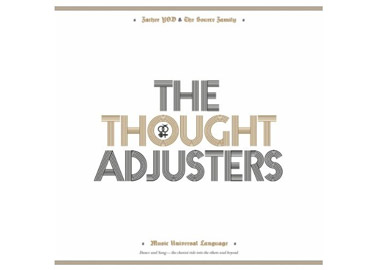Father Yod and the Source Family
The Thought Adjusters
(Drag City)
This two-LP set features the music of James Edward Baker (aka Father Yod, or YaHoWa), a business owner and spiritual commune leader in California during the late ’60s and early ’70s, and comes from a batch of previously unreleased recordings made before Yod’s 1975 death. Known as the Source Family, Yod’s commune ran a health food restaurant by day but dabbled in psychedelic rock at night, resulting in the the band YaHoWha 13 as well this lo-fi collection of demos and jams. Though the sound is sometimes hampered by persistent static, lengthy freakouts like “Sleepy Heads” and “Osiris/ Isis” reach surprising heights amidst tribal drumming and chanted vocals. Yod’s words resemble stream of consciousness sermons focusing on love, unity and energy. It’s an inside look at the West Coast coming down from the summer of love. —Michael Cimaomo
*
The Catbirds
catbirds say yeah
(independent)
The Catbirds describe themselves on their website as contributors to the “general din” of “noisy bands,” but the music of Catbirds Say Yeah is a well-defined noise rather than a cacophonous assault on the ears. Rock laced with elements of blues and jazz keeps the album varied and engaging. Every song is led by vocals, often dual, that ride atop energetic bass and drum beats. The band members add to the noise with diverse individual talents—Dinty Child, Chandler Travis and Steve Wood sing and play guitar; Child also performs on the mandocello; and Travis plays bass. The Catbirds formed in 2010 to “fight the war on boring and get all you people moving again” through rhythm and blues, rock and roll and “crazy loud stupid stuff.” Catbirds Say Yeah certainly keeps the boring at bay, with a well-defined—and loud—sound. —Patrick Kelley
*
Gato Libre
Forever
(Libra)
Gato Libre, as you might well not expect from the name, is a Japanese ensemble. The group began as a bass/trumpet duo, then became a quartet with guitar and accordion. The group’s music sounds like a stroll along a long-lost cobblestoned street, a gritty and ever-changing tour of discordant sounds, spacious single-note passages, and deeply introspective moments broken up by stretches of clearly defined melody. It’s not quite jazz, but it’s jazzy in approach; it’s similarly coy in its relationship to world music traditions, creating something that’s not easily attached to any particular time or locale. The musicianship is self-assured throughout, comfortable with minimalist tendencies, moving and mysterious. It’s a rewarding and evocative listen throughout. Track 6, “Japan,” contains a strange treat: the musicians explain that, at the performance, audience and band heard a mysterious repeating tone—in key, no less—of unknown provenance, possibly the interaction of the band’s sound with the space. —James Heflin



